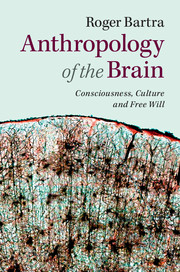Book contents
15 - Does free will exist?
Published online by Cambridge University Press: 05 June 2014
Summary
In the summer of 1930, Albert Einstein had a revealing discussion with Rabindranath Tagore. The great Bengali mystic was set on finding a space for freedom in the universe, and thought that chance, discovered by physicists at an infinitesimal level, showed that existence is not predetermined. Most certainly, he was referring to Heisenberg’s uncertainty principle, also called the indeterminacy principle. Einstein maintained that no fact would allow scientists to dismiss causality; and that the function of order could be understood on the higher plane, whereas this order is not perceptible in minute elements. Tagore interpreted this situation as a contradictory duality situated at the very depths of existence: liberty in conflict with the order of the cosmos. The physicist denied the existence of this contradiction: even the smallest elements maintain an order. Tagore insisted that human existence is eternally renewed due to a harmony that is built upon the opposition between chance and determination. In contrast, Einstein said that everything we do and experience is subject to causality, but he conceded that it is a good thing we cannot see it. To prove his point, Tagore gave the example of the Indian musical system, in which the composer creates a piece that allows for an elasticity expressed by the personality of the interpreter, who then enjoys a certain amount of freedom of interpretation. The discussion moved on to musical themes, because Einstein had a great interest in comparing western music and its rigid patterns with the music of India.
- Type
- Chapter
- Information
- Anthropology of the BrainConsciousness, Culture, and Free Will, pp. 118 - 124Publisher: Cambridge University PressPrint publication year: 2014

